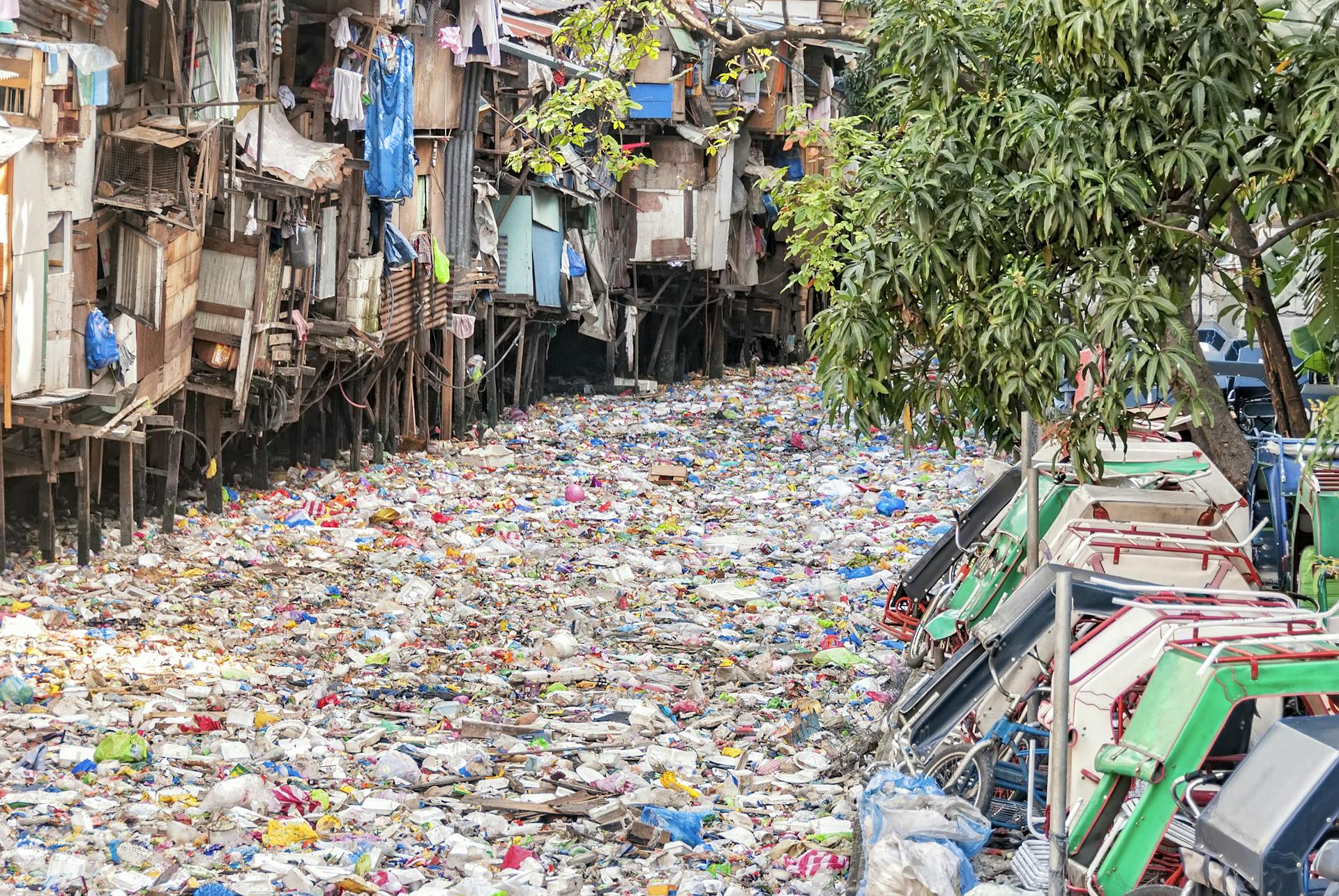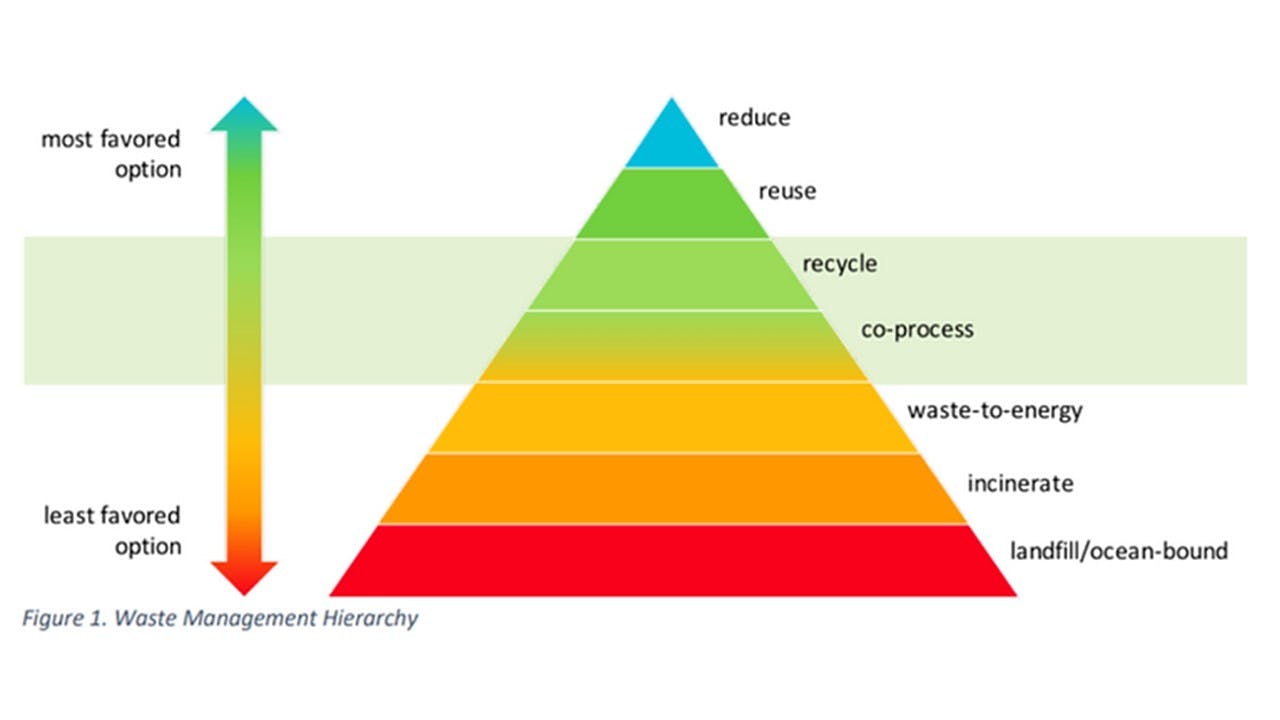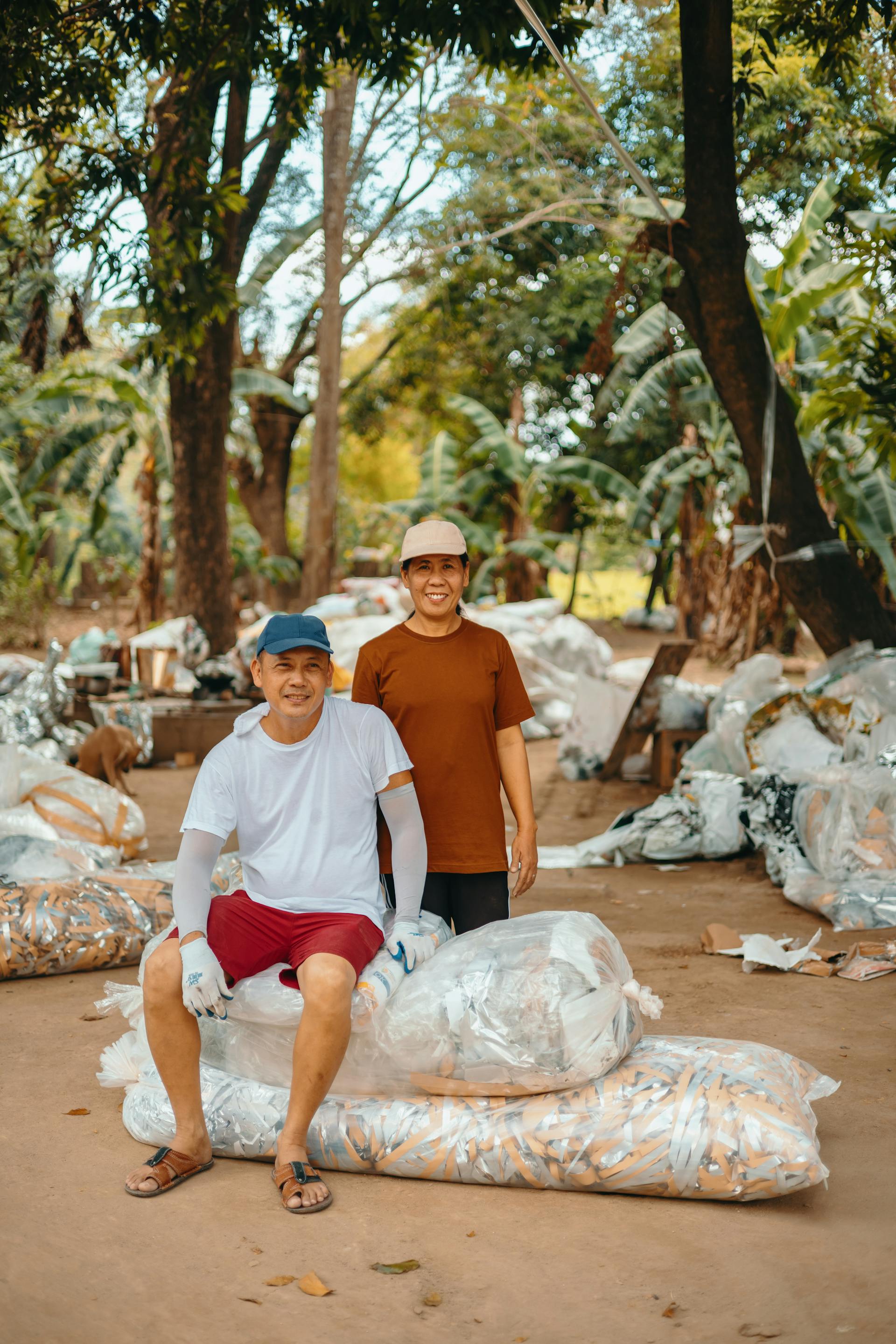
iStock Credit:Tony Oquias
PCX is on a mission to accelerate the transition to a circular economy and build a future where no plastic waste ends up in nature.
Our global plastic credits marketplace activates an ecosystem of partners who collect, transport and responsibly process plastic waste, tracked and verified through the power of blockchain technology, while supporting communities on the ground with programs that improve livelihoods and scale up social impact. We are committed to full transparency in all the work we do through our unique public listings and blockchain registry.
We fully recognize the concerns raised by environmental advocates and other stakeholder groups and agree that reduction in plastic production is absolutely crucial. It needs urgent and bold action on reduction of new plastic production and consumption, management of downstream plastic waste, including legacy waste that has been mismanaged for decades. We actively support our partners in their efforts to achieve this. However, even if we were to reduce the amount of plastic being produced by 40% from today’s levels globally (which are growing each year), the world would still produce as much as 9B MT of plastic waste by 2050 that needs to be responsibly managed, on top of the 9B MT of legacy plastic waste produced in the last 100 years.
Recent reports by SourceMaterial and ‘Break Free From Plastic’ contain significant inaccuracies and misstatements on the model, impact and trustworthiness of PCX. Today, we are publishing our direct response to those reports, below.
Developing countries simply cannot stem the flow of plastic waste into the environment, due to lack of proper waste infrastructure. The socio-economic effects of plastic pollution are distributed unevenly around the world, with wealthier nations producing more plastic waste: in 2019, for example, US citizens each produced 220 kg of plastic waste on average while their Indian counterparts produced just 14kg. This waste is often shipped to poorer countries, a phenomenon also referred to as ‘waste colonialism’.
We invite anyone who is passionate about the environment and concerned about the impact of plastic waste to sit down with us and discuss our offering and fully transparent approach, what we are trying to achieve and what we can do to improve.
We’d like to thank all our partners and community groups for their support, their shared enthusiasm for the cause, and the faith they’ve shown in what we’re building at PCX. We look forward to connecting with more people who want to work with us; who want to look for solutions; and who want to be part of the generation that brings an end to the plastic waste crisis.
The PCX Team
—------------
SourceMaterial, an online publication based in the UK, and an organisation called Break Free From Plastic recently published reports on plastic credits that mentioned PCX and contained a number of inaccuracies.
Allow us to share our overarching position as well as respond to specific inaccuracies and misstatements below:
Verified plastic credits can help fund collection, transportation and processing of the 8 billion tons of legacy plastic pollution which has already been produced and can threaten the environment, as voluntary action complementing a holistic plastic action plan; they can also be one of different upstream and downstream measures in mandatory schemes, such as Extended Producer Responsibility (EPR), to channel funding in waste management infrastructure in countries where it does not exist yet.
We believe that reduction in plastic production is absolutely crucial and we support our partners in their efforts to achieve this. Both for EPR compliance and to achieve Net Zero Plastic Waste certification, companies have to measure and audit their footprint (with exception for very small organisations with under 100 tons of annual footprint) and must have a plastic waste reduction plan in place.
Based on the waste management hierarchy of United Nations Environment Programme (UNEP) / Basel Convention co-processing in cement kilns with the proper safeguards and monitoring is an environmentally preferable alternative to landfills and open burning as end of life destination for non-recyclable plastic waste, and is also authorised by Governments around the world, especially in countries where higher level processing is not available, and even where proper collection and recycling infrastructure is in place.
In a working paper titled “Assessing the Contribution of Plastic Credit Schemes to Reducing Plastics Pollution and Improving Recycling”, the UN Environment Programme describes plastic credits as financial-institution instruments that incentivize recovery or disincentivize pollution, and pay for offsetting its impacts. “Both of these functions are classified by economists as strategies to internalise environmental costs and benefits. A plastic credit system is an institutional and financial intervention for preventing plastics to be discarded in nature and, in principle, for ensuring that they reach either controlled disposal or recycling.”
As the Break Free From Plastic report acknowledges when they state “These two organisations were selected because they are the most transparent about their projects”, PCX has a transparent blockchain registry with detailed accounting for all entries with absolutely no false claims of Net Zero Plastic Waste certification.
As clearly stated and detailed in our public website and accreditation documents for those who wish to review them, if a company wants to pursue ‘Net Zero Plastic Waste’ certification we do not allow self-reporting for any company with a footprint over 100MT, it requires an independent 3rd-party auditor qualified by PCX Solutions (refer to PPRS Standard module 3, Project Partner Accreditation Process, Third-Party Independent Auditor). These audits are all available for review.
For brands with plastic footprint below 100 MT, we require a footprint attestation which is publicly available on the registry.
For more details, please refer to the PPRS Standard, module 6: Brand Partner Certification Process, 2. Measure and Verify Plastic Footprint.
We recently migrated our system to a new platform, and some entries were incorrectly labelled as “Net Zero Plastic Waste.” We have not issued any Net Zero Plastic Waste certificates to these companies and the companies did not claim our certification. All companies which have received a Net Zero Plastic Waste certification have a declared footprint and executed credits for at least this full amount.
We explained to SourceMaterial - with associated evidence and accounting - there is no duplicate use of any credits. Each batch of credits Century Pacific purchased has a unique serial number. Credits within each batch are allocated to CPFI brands based on their audited footprint as they reach net zero plastic waste status. Thus, multiple brands can share a serial number. A brand is awarded only with unique credits from one batch, even if the serial numbers are shared.
PCX has granted Century Pacific certifications up to year end 2022. Plastic footprints were audited by PwC as part of the requirements of NZPW certification. The ‘pending’ status currently listed on PCX’s registry for this current year is due to the fact that PCX needs to wait for the company’s footprint to be audited at the end of 2023 before PCX can certify them for the current year. So it's not an issue of missing documents, as the article implies. It’s a case of waiting till the year is complete before the audit is done.
There were a few entries that reflect the certification status as pending and these are migration/ data entry errors. However, within those entries, the audit report and NZPW certification documents corresponding to the brand and declared footprint are attached/ uploaded.
As for the relationships between Century, PCX, and GenerationHope, all transactions between PCX and Century Pacific, as well as between PCX and GenerationHope have been conducted at arm’s length and publicly disclosed.
All credits purchased and issued for Century Pacific have been independently audited by PriceWaterhouseCooper through 2022 (with 2023 audit pending end of year data availability), and these documents are also publicly available for those who wish to review them.
GenerationHope, which has purchased on a voluntary basis since 2018, has had its plastic footprint audited by a combination of Ernst & Young and PriceWaterhouseCooper through 2021, with the 2022 audit still in process. Co-processing represents 33.71% of GenerationHope’s purchases, totaling $15,186.25
PCX does not develop or operate any credit-generating projects.
PCX has never issued a Net Zero Plastic Waste certification to Nestle Philippines. Nestle has not purchased any credits from PCX since 2022, and the relatively small number of credits purchased until 2022 are transparently shown on our registry and did not result in any Net Zero Plastic Waste or Plastic Neutral certification from PCX.
Both reports debate the topic of co-processing. Some points to clarify:
Despite allegations made/ implied in this article, PCX does not see ‘burning plastic’ as a ‘go to’ solution for plastic waste. We advocate for responsible waste management practices that comply with international standards and prioritize higher-order solutions wherever feasible. And as communicated to SourceMaterial quite clearly, the Philippine Government’s Department of Environment and Natural Resources (DENR) has issued very clear, science-based guidelines and requirements for the accepted application of co-processing as an end of life application of plastic waste.
Also plastic credits should, in particular, enable the collection of low value plastics from nature which have very high contamination rates. These materials would otherwise not be collected, especially in countries like the Philippines where plastic pollution has reached catastrophic levels. Co-processing is often the only viable option for those materials as they are not recyclable.
The SourceMaterial article includes a quote that says “From a climate perspective, it may even be less damaging to bury plastics in landfill sites” than utilising coprocessing.
We cannot agree to this statement. There is a very high risk of leakage of plastic waste from landfills into nature and waterways. Please also refer to figure 2.4 for the Waste Management Hierarchy, agreed to by parties to the Basel Convention.
Based on the waste management hierarchy of United Nations Environment Programme (UNEP) / Basel Convention (see graph below) co-processing in cement kilns with the proper safeguards and monitoring is an environmentally preferable alternative to landfills and open burning, please refer to the Technical Guidelines on Environmentally Sound Co-processing of Hazardous Waste in Cement Kilns released by the UN Environment Programme Basel Convention “Where waste avoidance is not possible, reuse, recycling and recovery of waste are preferable alternatives to non-recovery operations. As an example, co-processing in cement kilns provides an environmentally sound resource recovery option preferable to landfilling and incineration.”
Ocean Plastic Turned into an Opportunity in Circular Economy (OPTOCE), a regional project developed by SINTEF and funded by Norad that is part of the Norwegian Development Programme to Combat Marine Litter and Microplastics, describes co processing as “resource-efficient and environmentally sound compared to incineration.” You can read more about their research here.
We are closely monitoring any related policy developments at global level including United Nations Environment Programme - being an official observer to the Global Treaty on Plastic Pollution - and are an active member and participant of various industry and other stakeholder associations and working groups. As such, we will review our standard according to any new guidance and will adhere to all local and global regulations and as more data and evidence emerges.

Both articles also incorrectly imply that we focus on co-processing.
Plastic credit buyers are choosing projects based on a variety of aspects, both in voluntary and compliance driven markets; this includes geography, plastic waste type, collection type, social factors, etc. Prices are set by project partners, not by PCX.
With more funding coming into the waste sector via market-based solutions such as ours, the economic incentives for investment in proper collection and recycling infrastructure will increase, helping to keep waste out of nature and increasing the capacity of recycling and upcycling alternatives.
It’s been exciting to see the positive feedback and interest from corporations in the Philippines and globally in the services that PCX is offering. We’ve also seen increasing interest from our partners in other forms of processing such as recycling and upcycling as well as in more community-based collection, even at higher prices. We have now over 20 projects which are not using co-processing.
The articles discuss the carbon footprint of co-processing.
The actual energy recovery process from plastic waste has a similar carbon footprint to that of utilizing virgin coal in cement kilns; it’s also critical to account for the extraction and transportation of coal, which is relevant for countries like the Philippines where the majority of coal needs to be transported from places like Indonesia or Australia, which adds significantly to the overall carbon footprint of this process. So the end-to-end carbon emissions from utilising plastic waste for energy recovery are lower to that of virgin coal.
Details on the methodology we use to analyze the carbon footprint can be found here, see chapter ‘Tracking Carbon Footprint on Co-processing’: We are reviewing this factor regularly based on the latest scientific studies.
